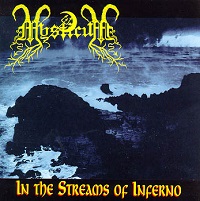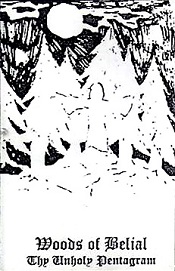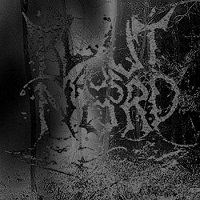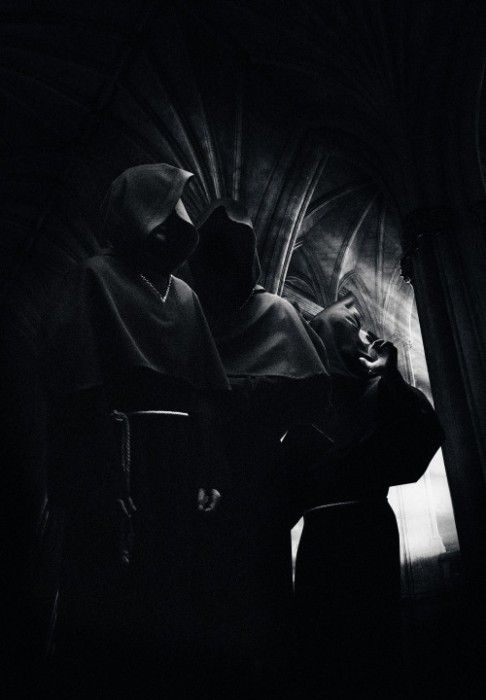The Work Which Transforms Black Metal: Fifteen Years Of Blut Aus Nord's Masterpiece

| Written by: | Auntie Sahar |
| Published: | September 05, 2018 |
The Work Which Transforms God, quite likely Blut Aus Nord's most influential and celebrated release, turns fifteen this year. Let's talk about that, shall we?
Without question, the French Blut Aus Nord have proven to be one of the most influential black metal bands of the past 20 years, with their ever changing, atypical injections of grinding industrial techniques into their larger black metal sound. Their 2003 album, The Work Which Transforms God, was really the album that saw them make a tremendous leap into more unconventional, forward thinking territory, in the process establishing a sound that would come to be explored even more with subsequent releases. In 2018, even with few bands in existence that really come close to nailing the "Blut Aus Nord sound," The Work still serves as a powerful example for younger, more daring black metal bands to take note on. Time should then be taken to discuss this monumental album's origins, content, and lasting impact all these years later.
BEFORE THE WORK: ROOTS OF THE SOUND
Although Blut Aus Nord have certainly acquired a massive reputation and left an enormous influence upon black metal unto themselves, like all artists they derived their approach at least partly from the work of their predecessors. I thus feel as though this article would be woefully incomplete without consideration of some earlier bands who quite likely served as sources of inspiration for Blut Aus Nord going more in the direction that ultimately yielded The Work. Surely some bands outside the realm of black metal were of influence, especially Swans and Godflesh, but for the sake of this article and shedding some light on more unknown artists, I'd like to focus specifically on the black metal bands that helped lay a foundational point of reference for The Work. Three in particular come to mind.
Ved Buens Ende

Ved Buens Ende are a perfect example of a black metal band who were pushing the sound of black metal into bizarre and nontraditional territory far before the experimentation that we see among bands today became more common. Emerging in Norway in 1994 at a time when many of their black metal contemporaries in the country were going for a much rawer and more evil sound, Ved Buens Ende threw the rule book completely out the window with their 1995 Written In Waters debut. It was definitely black metal, but of a new, extremely original variety, more midtempo and focused on an unusual sense of bounce and atonal dissonance. A hearty presence of clean vocals also made it quite unique for its time. Their obscurity notwithstanding, Ved Buens Ende have proved massively influential upon the development of so called "dissonant black metal" of the style bands like Blut Aus Nord and Deathspell Omega would further develop in the 2000s. And of course, although they broke up, we thankfully now have the spiritual successor of sorts to the band in the form of front man Carl-Michael Eide's Virus.
Mysticum

Also from Norway, the trio behind Mysticum formed a little earlier than Ved Buens Ende, but ended up releasing their debut album one year later, in the form of 1996's In The Streams Of Inferno. Comparatively speaking this album was closer to what else was going on in the Scandinavian black metal scene at the time, and a lot less "out there" than the Ved Buens Ende debut, but it was still highly unusual for its time. Mysticum went in a considerably more industrial direction than their contemporaries with their music, and are one of the first genuine examples of "industrial black metal." In The Streams Of Inferno was raw, grinding, and mechanical sounding at a level that few if any other black metal bands at the time had really matched. Most importantly, the band made use of a drum machine with the album, an important technique that reinforced the industrial approach and which may have served as inspiration for Blut Aus Nord utilizing one themselves with their more industrialized releases in the future.
Woods Of Belial

Lastly we come to the band who I personally find to be the spiritual forefathers of Blut Aus Nord more so than any other: Finland's criminally overlooked Woods Of Belial. This bunch tapped into a level of genre bending that virtually no other bands of their time were reaching, fusing the black metal sound with elements of doom, industrial music, and truly nightmarish electronic effects. Admittedly the sound of Woods Of Belial ended up leaning much more to doom than to black metal, but their potential influence upon Blut Aus Nord and The Work should still not be dismissed, because when one listens to some of the band's late 90s demos such as Thy Unholy Pentagram and that unpronounceable one with lots of As and Xs and then compares it to Blut Aus Nord's more experimental releases, the similarity between the two becomes easy to notice.
DISSECTING THE WORK
Though all of the above mentioned bands had an influence upon Blut Aus Nord and the development of industrial black metal, 2003's The Work Which Transforms God raised the bar for the style to a level that it had undoubtedly never before been raised to. The album felt as though it had taken some of the ideas of bands like Ved Buens Ende, Mysticum, Woods Of Belial, and brought them out to their full potential, to a maturation that they had not previously seen. The Work was darker, colder, and meaner, and whereas earlier efforts at the industrial black metal approach had more or less resulted in either a more black metal heavy or a more industrial heavy sound, Blut Aus Nord really balanced out both sides of the coin with The Work in an entirely new way.
Take "The Choir Of The Dead" for example. It starts as a frenetic maelstrom of black metal, albeit of a very claustrophobic, mechanical variety, replete with the snarls and blasts typical of the sound. Eventually, however, it slows to a more plodding pace and the industrial aspect of the music takes over and worms its way into the larger black metal sound. "Our Blessed Frozen Cells" sees a similar approach, starting in a more midtempo black metal area, but slowly descending into the more dissonant, industrialized sound that Blut Aus Nord would later become more known for, especially during the magnificent climax of its second half. Elsewhere on the album, tracks go in the opposite direction, starting in a slower, more industrialized area and then gradually cranking the knob on the black metal presence as they progress.

And of course, there's the fantastic "Procession Of The Dead Clowns" as a closing track. Solemn and melancholic, it serves as the perfect finale to what has otherwise up to that point been a rather bleak and aggressive listening experience. More mellow, yet still haunting, the track is a powerful example of how sometimes in music much can be accomplished with very little. Featuring a repetitive melody composed of only three or four chords, the approach is nonetheless effective: this track is indeed the final, somber sendoff after listeners have already experienced the intensity of Blut Aus Nord's mechanical black metal apocalypse.
Most likely, The Work Which Transforms God did and still does represent Blut Aus Nord's fusion of the black metal and industrial dimensions of their sound at its absolute tightest. Here the ratio between the two was pretty 50/50, whereas with later efforts the band would go in directions that tapped more into one side of the equation than the other.
THE WORK'S LEGACY
The Work Which Transforms God was a watershed release, one that would prove important not only for younger bands looking to go after their own interpretations of the industrial black metal sound, but also for Blut Aus Nord themselves, as something of a reference point for exploring either more orthodox or more unconventional approaches from there. This has more or less been the case for the band with all of their post Work material: they have either moved in a more electronic direction (Thematic Emanation Of Very Long Title), a more ritualistic, industrial type one (the 777 trilogy), a more generic black metal one (Memoria Vetusta II and III), or a completely out of the box sound that you'd be hard pressed to label with any sort of accuracy (MoRT). Regardless of whether or not one prefers The Work to the albums that came after it for Blut Aus Nord, it is undeniable that the album served as the major transition point for the band that set the stage for nearly everything they have done since.
Today, 15 years after its release, it's still very difficult to find bands that actually replicate the sound of Blut Aus Nord and/or The Work to a T. For some reason or another, their sound is somehow much harder to reproduce for bands than that of their "siblings" in Deathspell Omega. Nevertheless, this certainly doesn't mean that they have not left a significant influence upon contemporary black metal with their work. In the 2010s in particular I think the most noticeable heirs to the "Blut Aus Nord sound" would be Throane, P.H.O.B.O.S., Terra Tenebrosa, and to a lesser extent the young Icelandic one manner Almyrkvi. It's interesting to note as well that of those four bands, not all are black metal, with P.H.O.B.O.S. going in a predominantly doom metal direction and Terra Tenebrosa spewing forth some puzzling, Avantgarde-ish blend of black, sludge, industrial, and dark ambient. What this means is that the influence of Blut Aus Nord and The Work is not merely confined to black metal anymore, extending into other areas of the metal spectrum and perhaps even into nonmetal genres as well.
Nearly 25 years into their journey, Blut Aus Nord still serve as a powerful influence both within and beyond black metal, not merely for The Work, but perhaps primarily because of it. They are one of the few "older bands" within the genre that have demonstrated a remarkable degree of consistency across their discography and whom listeners can still get reasonably excited for new releases for. It's never quite clear what these shadowy, genre bending Frenchies have up their sleeves next for listeners, and at times it seems as though the number of ideas lurking in their hat is truly endless. If one thing is clear though, it's that for both themselves and other bands looking to further expand upon their legacy, The Work Which Transforms God still stands as the ultimate focal point. And it's certainly not without reason that it does.

Comments
Comments: 22
Visited by: 176 users
| RaduP CertifiedHipster Staff |
| Auntie Sahar Drone Empress |
| RaduP CertifiedHipster Staff |
| InnerSelf proofread free |
| Auntie Sahar Drone Empress |
| RaduP CertifiedHipster Staff |
| Auntie Sahar Drone Empress |
| RaduP CertifiedHipster Staff |
| Auntie Sahar Drone Empress |
| RaduP CertifiedHipster Staff |
| Auntie Sahar Drone Empress |
| RaduP CertifiedHipster Staff |
| Auntie Sahar Drone Empress |
| Bad English Tage Westerlund |
| Auntie Sahar Drone Empress |
| VIG Account deleted |
| Auntie Sahar Drone Empress |
| Gesualdo Posts: 29 |
| Auntie Sahar Drone Empress |
| Gesualdo Posts: 29 |
| CroneZone Posts: 2 |
| VIG Account deleted |
Hits total: 11401 | This month: 34







